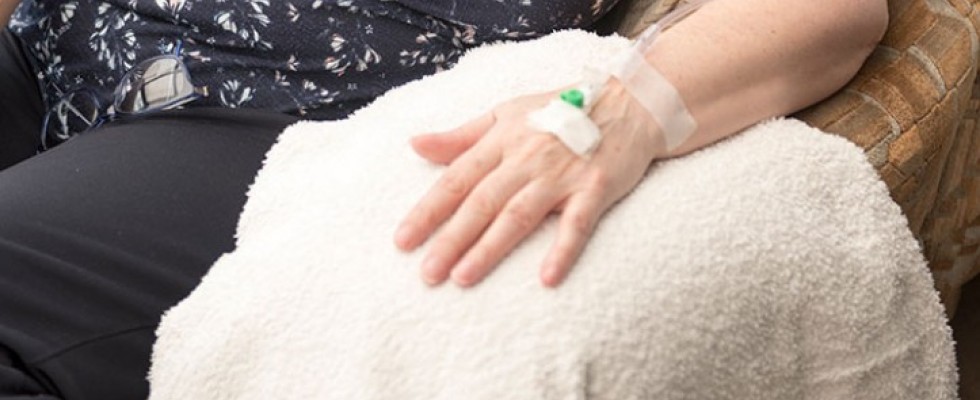
Lawmakers had good intentions when they signed the 21st Century Cures Act (Cures Act) into law back in December 2016.
The bipartisan law provides authorization and funding to foster the expansion of medical research and expedite approvals of new drugs and medical devices, which will benefit many patients across our nation, including the sickest and most vulnerable populations.
However, one provision could potentially have the opposite impact on some of Medicare’s most vulnerable patients.
While the Cures Act created a new payment methodology for home infusion services that is scheduled to begin in 2021, the Act also reduced Medicare payments for certain home infusion therapies as of January 2017. Unfortunately for patients and providers, these reimbursement changes created an unintended four-year “care gap” (2017-2021) that threatens seniors’ access to home infusion care.
Home infusion patients typically suffer from acute, high-risk conditions. Patients who have congestive heart failure and are waiting for heart transplants or those who are immune-compromised with primary immunodeficiency disorder, stand to be most affected. These patients’ conditions require the delivery of medications intravenously, rather than orally. The patients are typically very weak and vulnerable to secondary infections and comorbidities.
Home Is Where Health Is
When a patient’s health condition is so severe that oral medications are not effective, they are often prescribed infusion therapies. These therapies are often life-sustaining and can be provided in the home to keep patients out of the hospital. Since home infusion patients typically suffer from high-risk conditions, caring for these patients in their homes saves the health care system money.
Home infusion therapy is complex and requires an experienced team of health providers to manage a patient’s complex disease state incorporating comprehensive pharmacy, nursing, education and therapy management programs. Each year, thousands of Medicare patients rely on home infusion, and it has been proven that they are afforded an improved, and often sustainable, quality of life.
Without access to home infusion therapies, it is believed that many patients could be forced to migrate to the hospital setting to receive similar treatment, thereby resulting in higher costs for the Medicare program. Without access to infusion in the home, these patients are basically left with only two choices:
- Patients may have to visit a hospital several times a month to receive inpatient infusion care at significantly higher costs. Since many of these patients already have serious health conditions, inpatient care could also expose them to increased risks of infections or other health complications.
- Patients may decide to no longer receive their infusion therapies in the home and likely suffer serious health setbacks, and ultimately, have to enter the hospital in an acute state.
Alternatively, the lack of access to home infusion care may even result in death in certain cases.
In either of these two scenarios, the patient’s health outcome will worsen, and the hospital bill will be significantly higher than that of delivering of the same services in the home.
As an example, the financial impact can be significant between home infusion administration versus the hospital outpatient setting for intravenous immunoglobulin. The administration of home immunoglobulin (Ig) is more cost-effective than any other site of care. Prior to the reimbursement changes due to the Cures Act, the mean cost per patient infusion for Ig was $4,745 on average in the hospital outpatient setting versus $3,293 in the home, or 31 percent less than the higher cost setting.1
A Remedy for What Ails
In the 1980s, Medicare began covering home infusion therapies because it was more convenient for patients and less expensive for the health care system. As health care costs continued to increase, lawmakers promoted policy solutions that brought patients the best care at the lowest possible cost.
That is the reason why home infusion stakeholders have been aggressively urging members of Congress to remedy the infusion care gap. They want to ensure patients can continue to receive these beneficial lifesaving therapies in the most cost-effective setting.
Positive strides are being made to continue to care for patients in the home. Considerable time, energy and resources are being dedicated to meeting with lawmakers to advocate on behalf of affected patients, physicians and providers. In July 2017, Representative Pat Tiberi (R-OH) and Representative Bill Pascrell (D-NJ) introduced HR 3163, the Medicare Part B Home Infusion Services Temporary Transition Payment Act. This bipartisan bill creates a temporary transition payment for home infusion services to build upon the Cures Act and ensure that Medicare beneficiaries can continue to access life-saving infusion services in their homes. If passed, the new temporary transition payment would begin on January 1, 2019.
On July 25, 2017, the U.S. House of Representatives also approved HR 3178, the Medicare Part B Improvement Act of 2017, by a voice vote. This bill made several improvements to the Medicare program, including the home infusion temporary transition payment legislation that was introduced by Representatives Tiberi and Pascrell. The bill has been sent to the Senate where it awaits further consideration.
The Senate has also been working on new legislation. On August 3, 2017, a bipartisan group of seventeen Senators led by Senators Mark Warner (D-VA) and Johnny Isakson (R-GA), introduced S 1738 the Medicare Infusion Therapy Access Act of 2017. The Senate bill contains the same legislative transition payment language that passed the House at the end of July.
The introduction of these bipartisan bills—in both the House and Senate—is a great step forward toward limiting the impact of the infusion four-year care gap. Hopefully, the Senate can follow the lead of the House and quickly pass this important bill to ensure Medicare patients continue to receive access to these important services in their homes. About 10 million people receive home infusion therapy nationwide.
